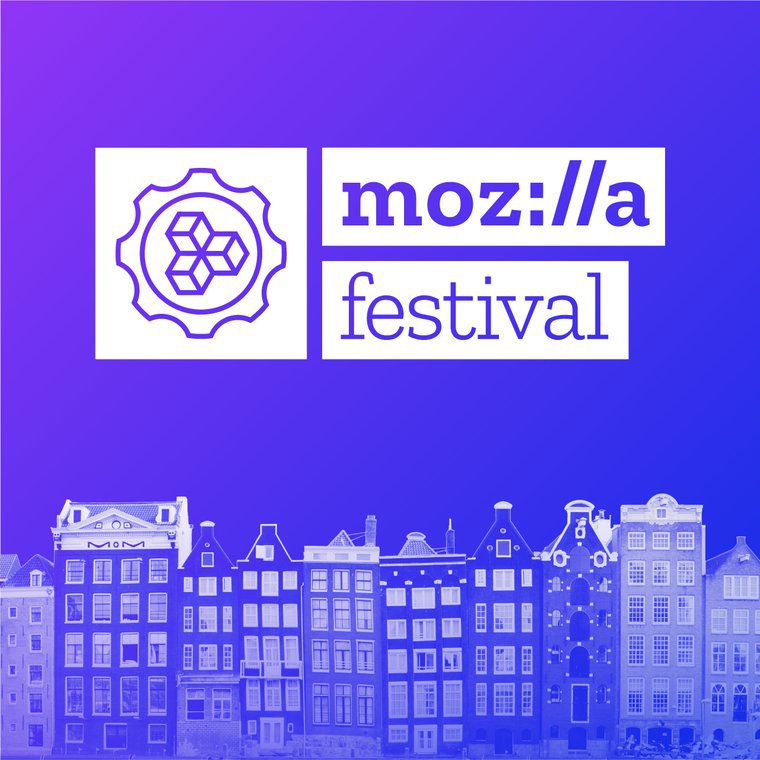
Yes. I’m telling you I’m a language nerd without telling you I’m a language nerd. However, in communities like ours, in which languages expand, mix and come together to share ideas and find common grounds, whether we realize it or not, we’re all quite the language nerds in many of the languages we speak (spoken, signed or coded). But there’s a problem, and it’s not small: many of the languages in which we speak, joke, create and dream are not present in the conversations we want to have on the internet. This year’s report on the Internet’s languages said it best: There are more than 7000 languages in the world, yet only a handful of them can be fully experienced online.
And so, while reflecting on last year’s Mozilla Festival and how it could be more language inclusive, we started dipping our toes in the multilingual water, thinking about translation assistance and ways to have sessions in more than one language. We quickly realized language inclusion had to be about more, a lot more, than simply making content available in English if people decided to speak their own languages in their sessions. Many questions filled our heads as we began to dream:
- How do you plan the translation of terms that didn’t exist before?
- How do you translate a feminist dictionary of AI?
- How do you know who translates what when the design of your session keeps changing shape?
- How do we carry an interactive session about data justice while having interpreters in the room?
- How can one become fluent in gender-inclusive language?
- How do we go beyond words and build bridges from one imaginary to another, one cultural system to another?
Thinking in constellations
Throughout this learning journey, we realized that language inclusion is as much about communicating and strategizing as it is about language itself. It’s not just one thing, and it is not all language. Language inclusion is very much about bringing the Mozilla Festival outside and beyond the virtual walls of the Mozilla Festival. That is: organizing conversations after the festival, creating content through different media and above all creating safe spaces. This is so that whatever language we choose to tell our story, we feel free telling it and we have fun doing it. We left behind ideas around single methods and embraced thinking in terms of constellations, or a group of ideas and experiments that all have a common thread: language inclusion. All in all, we learned that thinking about languages within the festival is a process made of many connected dots made of team organization, community participation, crowdfunded efforts and lots, (lots!) of creativity.
We experimented with multilingual teams, translation of written materials, parallel sessions, working with video/audio and language appropriation (in many cases, English appropriation): learning to feel confident speaking a language that is not your first, forgetting about colonial conventions that end in exclusion and loving how you sound in it, and daring to add your own touches.
The experiment continues this year; we’re taking these learnings from MozFest 2022 and running with it all for 2023 and beyond. This is no less than a full scale mission, and our first step forward will be in Spanish. MozFest is encouraging Spanish speakers to bring their ideas, their sessions and their communities to the festival. This will open the door to more ideas, more strategies, and hopefully, more languages.
Sign up for the MozFest newsletter for the latest language inclusion news. In the meantime, we continue experimenting and trying new things. I believe this is the kind of process that can only make sense if it remains open-ended and always changing, the same way language lives and moves. How else can one tell the story of languages at MozFest – and of language inclusion as a whole – if not in constant movement.

Laura Vidal has been working on language inclusion with MozFest since 2021. She’s also a doctor in informal learning, specialized in online communities and intercultural exchange.
MozFest is part art, tech and society convening, part maker festival, and the premiere gathering for activists in diverse global movements fighting for a more humane digital world. To learn more, visit www.mozillafestival.org.
Sign up for the MozFest newsletter here to stay up to date on the latest festival and internet health movement news.






